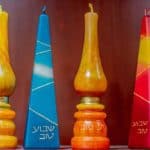WHAT IS THE MEANING OF ‘RITUAL’?
 What rituals do you have in your daily life? Do you have a unique way you squeeze your toothpaste or shave? How about the order in which you eat your vegetables from your plate? Have you ever thought about why? (Photo by ‘supply’ on Unsplash)
What rituals do you have in your daily life? Do you have a unique way you squeeze your toothpaste or shave? How about the order in which you eat your vegetables from your plate? Have you ever thought about why? (Photo by ‘supply’ on Unsplash)
We do many things as a matter of habit. Many routines are triggered by something else, like getting up in the morning. Other times it may not be quite as clear how a tradition began. Many people engage in “Morning Practice” to begin their day.
All we know is how uncomfortable we feel when we skip it. Even my dog, Dekker, follows rituals. If I miss his after-breakfast-ball-toss, he lets me know about it! Rituals are habits that hold personal as well as community significance.

A ritual as part of a religious ceremony follows a prescribed set of actions, such as using water for baptism or lighting a Shabbat candle.
These ceremonies passed down over many centuries, hold the stories, memories, and mysteries of generations of societies and cultures. They have become sacred, not because of any inherent property of themselves, be that water or candle wax, but holy because of what they hold in the collective memories and stories of their ancestors. (Photo by Joshua-Sukoff on Unsplash)
We call the items and actions of such rituals’ sacramental’ because they point to something beyond themselves.
WHAT IS A SACRAMENT?
I read in a book (title and author long since forgotten), of a priest serving as a missionary in South America who could not make it home for the funeral when his father died. As his sister put together a small box of their father’s possessions, she included a half-smoked cigarette in a small vial. Their dad had been a heavy chain-smoker who ultimately died of lung cancer.
The priest separated the vial and its contents from the rest of the letters and memorabilia. He then carefully wrapped it in a handkerchief that had been in the box and tucked it in the corner of his desk drawer where it stayed for the rest of his years of service.

Every morning as he sat down at his desk, he would reach for the vial, mindfully unwrapping the handkerchief around it. Once he removed the cork wedged in its opening, he leaned back in his chair, inhaling the stale cigarette scent. He smiled and sank into a field of tender memories of his father. (Photo by Sara-Kurfess on Unsplash)
For this priest, the sacrament— a piece of garbage to anyone else— was a ceremony of remembering and thanksgiving, a call to prayer and thanksgiving, a moment in which he was no longer a graying priest in a foreign country, but a little boy on his father’s knee.
For the priest, this nasty stained cigarette butt held the essence of his father…his wisdom and humor, his values, and his faults. It’s aroma connected him with that essence and eased the pain of his grief. More than that, it united him to that which had given him life.
The daily ritual of letting the scent wash over him connected him with healing stories of forgiveness, nourishment, and steadfast love. Creating a ceremony with anything that connects us to the meaning of life and reaches down to our core is healing – and ‘sacramental.’
WHO IS QUALIFIED TO
CARRY THEM OUT?
In the sense that we all have things, places, and people who could fit in this definition, are we not all ‘priests’ of the sacraments of our own lives, fully commissioned to carry out rituals that connect us with our past and guide us into the future? Of course, religious traditions have specific definitions that serve the purposes of their communities.
The actual healing life-giving power of ritual is a field for neuroscientists, psychologists, or perhaps philosophers to tackle. I fit none of these categories, and so I won’t try to speak from any position other than personal experience, as a witness to the healing power of ordinary ritual in my life, trusting that you may share similar experiences.
HOW DO WE USE THEM IN EVERYDAY LIFE?
We all have unique rituals acquired over a lifetime from our faith traditions, family customs, or community practices. When we light incense or sit in meditation, we are acting as priests in our personal lives.
 In my priestly role at home, I light candles, ask a blessing before a meal, spread leftover breadcrumbs for the birds, and plant flowers on Memorial Day. (Photo by Lane Jackman on Unsplash)
In my priestly role at home, I light candles, ask a blessing before a meal, spread leftover breadcrumbs for the birds, and plant flowers on Memorial Day. (Photo by Lane Jackman on Unsplash)
These are all sacramental rites because they point to something much more significant than their elements. As rituals created from everyday items, they are repetitive and they connect us to a specific time. Upon rising. Before meals. On anniversaries and holidays, or certain days of the week.
We are a people of ritual! Candles or fireworks to celebrate. Flowers to seek forgiveness.
 Baptism, circumcision, or Christening at the birth of a child. (Photo by Josh-Applegate on Unsplash)
Baptism, circumcision, or Christening at the birth of a child. (Photo by Josh-Applegate on Unsplash)
If religious rites are not our tradition, we will find other meaningful ways to mark an event. I know a family who carved the name of each of their five children in an old oak tree beneath the names of their parents and grandparents.
What makes it sacramental are the stories and memories shared over time through a symbolic act or item. In this case, a tree.

We have rituals for going to sleep, for greeting the morning (‘smell the coffee!’), for life events—marriage, graduation, paying off the mortgage, and death, to name a few. (Photo by Oriento on Unsplash)
Many people have a ritual of Morning Practice.
I consider rituals to be “tent pegs.”
That is a term I adopted to describe things that keep me grounded, which prevents me from flapping in the wind. I will write more about tent pegs soon. In the meantime, I invite you to make a list of all the rites, traditions, or sacraments that nourish and sustain your life, and maybe create a few new ones. In these days of COVID19, we need all the grounding we can find.
If you are not already on the mailing list to receive a note and
link to new posts weekly, why not do it now?


helen Willey
water flowers, walk dog when had one, find quiet place to sip coffee
Dara Perfit
I like the idea of “tent pegs” very much.
I am thinking of food not so much as a daily ritual but the ritual of certain foods for special holidays as for example, Rosh HaShannah, in which the foods reflect the meaning of the holiday: the sweetness of the apple or honey to remind one that the New Year should be blessed with sweetness and joy.
The tent pegs of food also link us back to family, mother and grandmothers, whose recipes were not written down but are carried down by memory linking us to many before us.